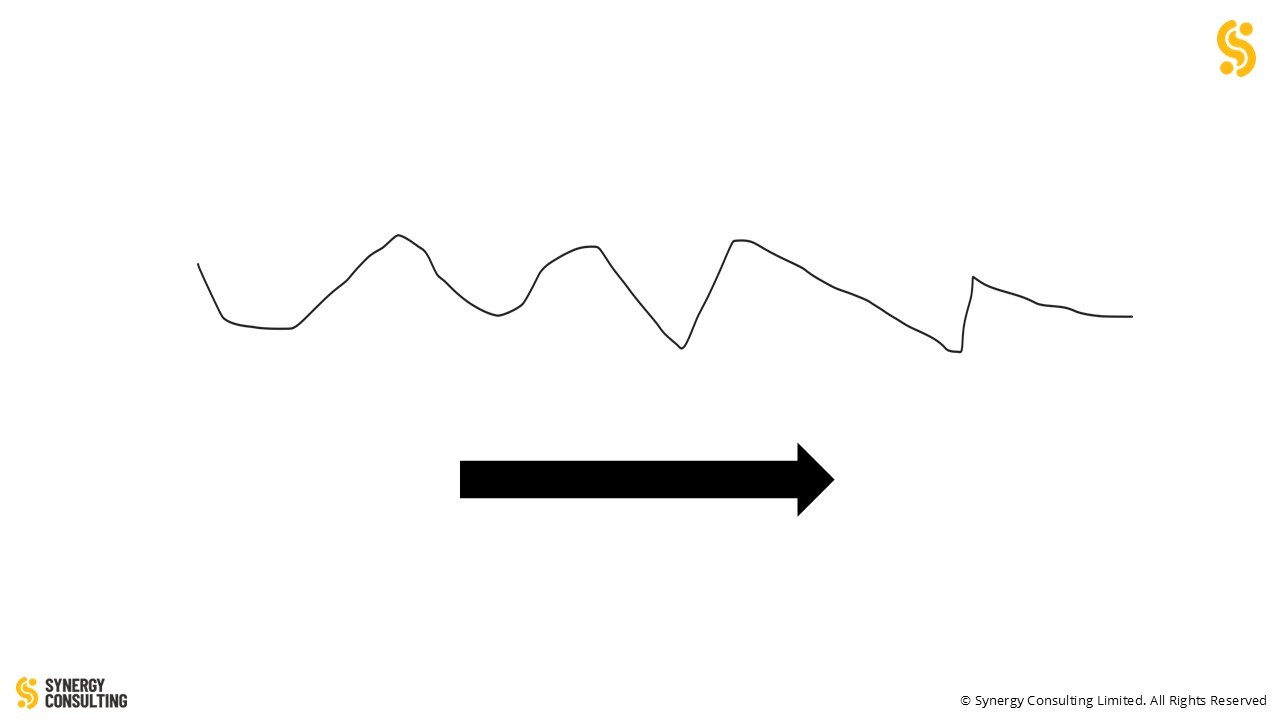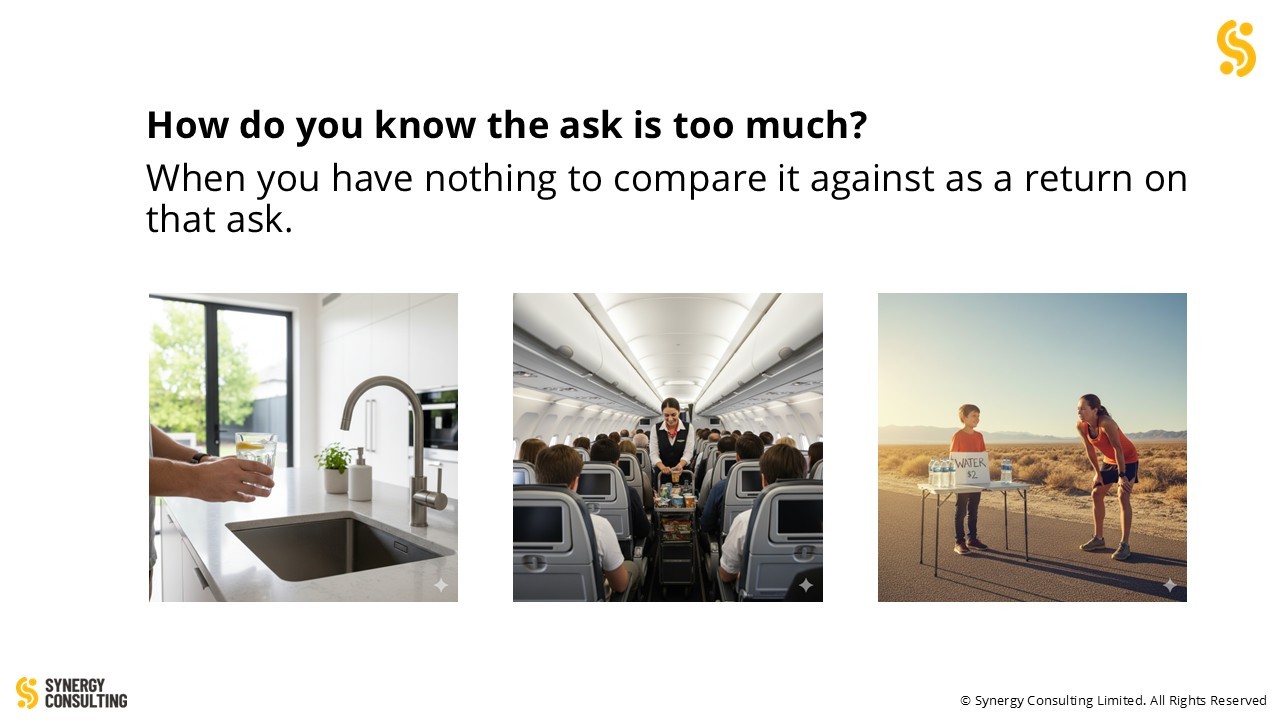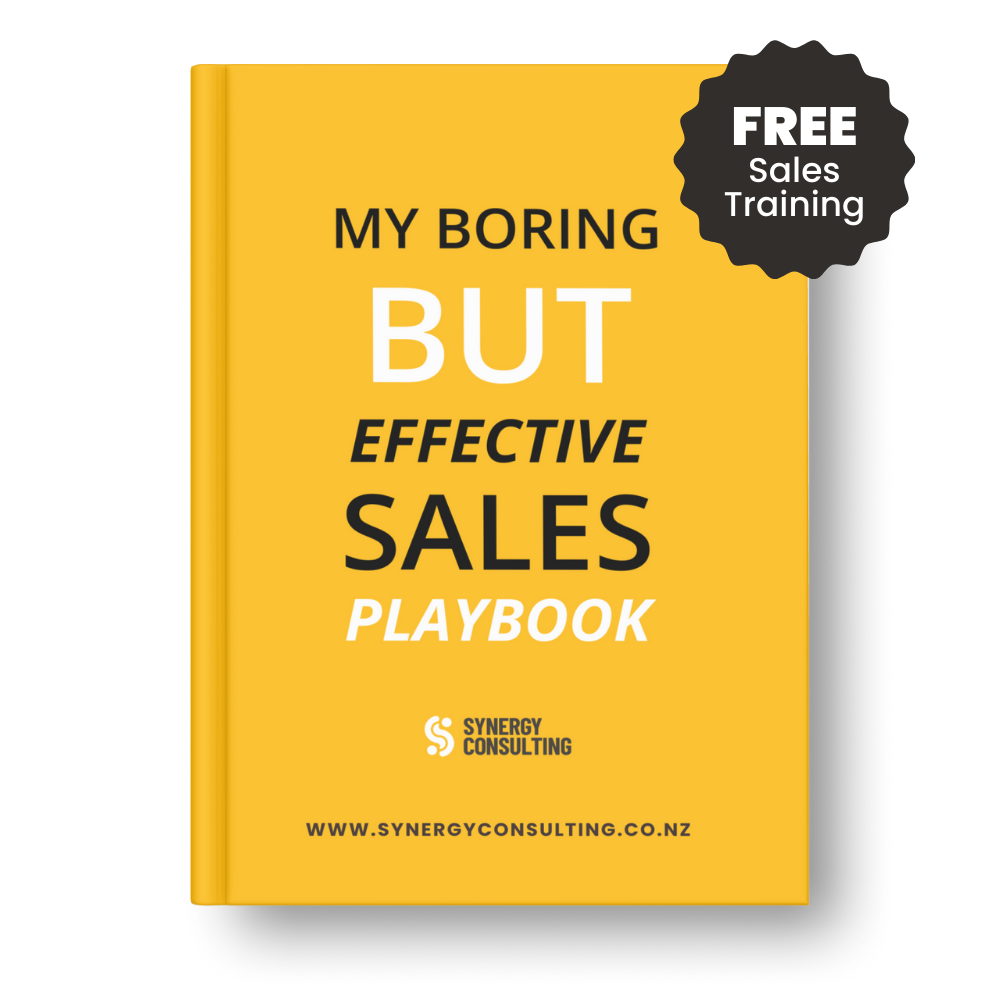4 Forgotten Truths for Building Momentum in Sales & Career Growth
Sep 25, 2025
These were some core points I recorded in a video for one of my coachee's. On reflection, I realised that these points could add value for others facing similar challenges in the sales roles and careers. When I first sat down to record this message, I had two things in mind.
The first was sharing how you could keep yourself on track even if you don’t have me in your corner coaching you week to week? What systems can you fall back on so you don’t slip back into chaos?
The second was: how do you build the confidence and skill to negotiate for yourself? Whether that’s budget for development, approval for a course or even a raise or new role, it’s something I wished I’d learnt much earlier in my career.
Those two themes, systems and negotiation, are at the heart of progress. And they lead to four easily forgotten truths I’ve learnt through my own career and through coaching others.

Expect up's and down's as long as you are progressing forward
1. Progress isn’t a straight line, it’s a wobbly path
I used to think once I had a plan sorted, everything would fall into place. Step one, step two, step three, then results. That illusion was broken very quickly.
The truth is, even with the best plan in the world, your progress will wobble. Some weeks you’ll feel on top of everything. Other weeks it’ll feel like nothing is working. That’s normal.
The point of having a system isn’t to give you a smooth ride. It’s to give you something solid to hold onto when the ride gets rough. It’s the thing that stops you slipping back into chaos.
Real progress is about showing up every day and sticking with your process, even when things aren’t going your way.
2. “Too busy” is procrastination in disguise
One of the biggest traps I see is people saying I’m too busy. It sounds valid. But nine times out of ten, it’s just a cover for avoiding the real work.
I've seen this play out first hand with my own work and when I started coaching. I gave clients the freedom to book calls whenever it suited them. On paper it sounded flexible. The right thing to do given I understand how life in sales can be. In reality it meant delays, slow execution and a risk to real accountability.
So I changed it. I run coaching across 6 sessions. We decided to start booking calls monthly all in advance. Suddenly the excuse of being too busy vanished because the time was already locked in.
If you catch yourself saying I’m too busy, stop and ask: am I actually flat out or am I putting off something that feels uncomfortable? If you don’t challenge that thinking, busyness will strangle your momentum.
3. Negative self-talk becomes reality if you let it
I know this one personally. There have been times where I’ve sent cold outreach messages to sales leaders and had no response. Straight away the voice in my head starts: maybe I’m no good at this, maybe I don’t have the skills.
If you listen to that voice, it kills your action. And once you stop acting, you’ve guaranteed failure.
Here’s what I’ve learnt: feelings don’t count as evidence. Only facts do. Unless 50 sales leaders write back and tell me my outreach is useless, I keep sending messages.
Momentum doesn’t come from feeling confident. It comes from doing the activity consistently, even when doubt is screaming at you. Confidence follows action, not the other way around.

When you're looking to negotiate something for yourself (Thx Gemini)
4. An ask is only too much if you don’t frame it
This is one I wish I had learnt much earlier. For a long time I didn’t know how to negotiate for myself. I avoided asking for travel budgets, training money or even a fair salary because I thought the ask would sound unreasonable.
But here’s what a life in sales changed this for me: I realised that the value of an ask depends entirely on context. Without context, any ask sounds like too much. Like price objections, with the right context, the same ask becomes completely reasonable.
Think of it like this, (not my example btw but one that makes sense):
- At home, paying $2 for a glass of tap water is ridiculous.
- On a plane, paying $2 might feels fine.
- In the desert after a run, $2 for a bottle of water is a bargain.
Same product, different context.
Now let’s apply that to work. If you’re asking your company to invest $4,000 in coaching, don’t just say I need $4,000. Instead frame it. Compare it to a business trip. A single long haul overseas conference could cost $3,300 for flights, $1,000 in hotels, $500 in meals, plus a week of salary. All up it’s closer to $7,000. In that context, $4,000 for personal development that drives performance looks like a smart investment, not a big ask.
Or take a raise. Say you want an extra $10,000. If your company thinks that’s too much, ask them to consider the alternative. If you left (don't say this btw), they’d likely pay a recruiter a 16% fee on a $120,000 role, that’s $19,200 gone straight away. Add training costs, lost productivity for three to six months and the total could hit $40,000 or more. In comparison, $10,000 to keep a proven performer isn’t expensive, it’s smart cost saving.
The key here is simple: use “if scenarios” and maths to frame your ask. If they had to replace you, here’s the cost. If they fund you, here’s the return. That comparison flips the conversation from cost to value.
So what for you
Here’s the bottom line: success isn’t about constantly grinding harder, it’s about being smarter with system to catch you when you fall. That why we call them systems
- Expect setbacks, the line will wobble.
- Don’t fall into the busyness trap.
- Catch negative self-talk before it slows you down.
- And when you ask for something, frame it in context so the value is clear.
These lessons come from lived experiences. They’ve helped me and they’ve helped the salespeople I coach.
So here’s my challenge to you: what system can you put in place today and what ask have you been putting off because you haven’t framed it properly yet?
Btw, If you're looking for more "systems" to help you in your sales role, checkout this sales activity builder which takes your sales targets and turns it into an action plans of what business you need to go out and find to hit that target. Have a play and see what you think.

